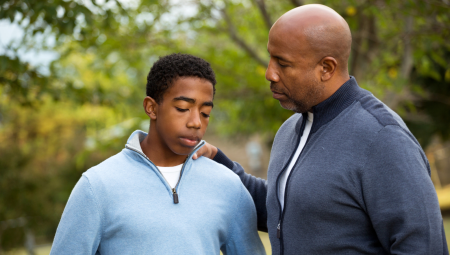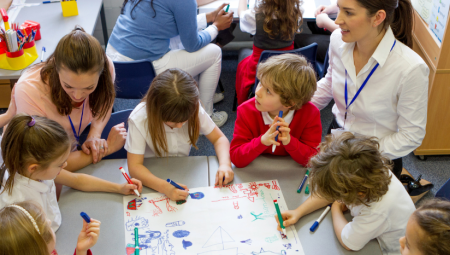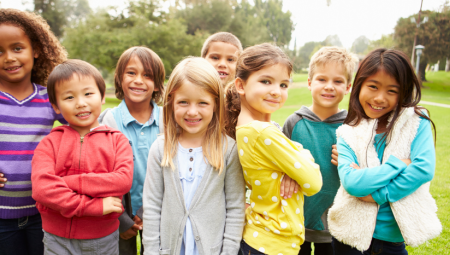Background
At a national level, there are over three times as many Children & Young People (CYP) in contact with mental health services as there were seven years ago. Latest evidence suggests that rates of mental illness in CYP may be growing at a faster rate than amongst adults. Between 2017 and 2022, rates of probable mental health disorder increased from around 1 in 8 young people aged 7-16 to more than 1 in 6. For those aged 17-19, rates increased from 1 in 10 to 1 in 4.
The context of CYP wellbeing in Luton has a young, ethnically diverse population, and many live in areas of multiple deprivation with widespread health challenges. Luton has 24% of neighbourhoods in the 20% most deprived areas in England. These groups are typically underserved by research. It is the most ethnically diverse area in the Bedfordshire, Luton, Milton Keynes (BLMK) region, with over a third (37%) of the population being South Asian. South Asian communities are consistently underrepresented in mental health research due to stigma, and systemic and cultural barriers.
Importance of research engagement for Children & Young People and their families can often be viewed as removed from service delivery and the day-to-day practicalities impacting the wellbeing of CYP. However, promoting a collaborative, vibrant and safe research environment for CYP and their families, clinicians, academics, voluntary sector, local authorities and policymakers, has multiple benefits for clinical services, with potential to improve access, quality and outcomes of care, as well as providing individual impact and contributing transformative knowledge.
We conducted a human-centred design workshop and events to bring together stakeholders across the region to undertake a priority setting exercise for CYP Mental Health, which has resulted in applications for future funding and bespoke training of CYP MH research champions.
Project Aims
- Created a community of practice for CYP Mental Health
- Trained and retained Community Research Champions in CYP Mental Health
Project Activity
Creating a sustainable model of research engagement for Children & Young People. We co-created a new model of research engagement for CYP, by developing Research Champions (RCs) and providing targeted training in CYP Mental Health. Our RCs included social prescription link workers, people participation workers and child welfare practitioners embedded within existing community organisations including Active Luton and CHUMs, and East London NHS Foundation Trust (ELFT).
Bespoke mental health training was delivered by the ELFT People Participation and Psychotherapies teams. The two-day, face-to-face training course was co-designed with CYP and built upon a model of community resilience, providing an overview of the mental health needs of CYP as well as their families. The aim of the training was to help RCs to effectively support CYP in their daily roles as well as to engage with future research in Luton.
In addition, we provided National Institute for Healthcare Research (NIHR) Research Ready Communities training to the RCs, to introduce the importance of embedding an active research culture within communities, and the benefits of participating in research. We ensured that the RCs understood the safeguarding implications of engaging with CYP and their families. We maintained a focus on the wider social context in which CYP mental health occurs, including the home and school environments.
Outputs
- We created a report outlining the research priorities for CYP Mental health in BLMK.
- We created a Community of Practice of academics, Clinicians, management and schools around CYP mental health in BLMK.
Papers and resources
Read the report titled, 'Priorities for children and young people's mental health research engagement'
Next steps
We have also received a further £30,000 in funding from NHS England to continue the project, and hold an event in Luton in Movember for our Community research champions for Children's health. We have also submitted two research bids since this and awaiting outcomes.
Who was Involved?
- Sanhita Chakrabarti, Bedford, Luton, Milton Keynes (BLMK) ICB
- Saddaf Shaheen, Bedford, Luton, Milton Keynes (BLMK) ICB
- Emma Brown, Bedford, Luton, Milton Keynes (BLMK) ICB
- Shobhana Nagraj, University of Cambridge
- Bridget Moffat, Bedford, Luton, Milton Keynes (BLMK) Clinical Commissioning Group
- Debbie Robson, CHUMS
- Maria Game, Active Luton
- Nazima Lami, Active Luton
- John Bateman, Active Luton
- Kate Emond, Health Innovation East
- Sophie Knight, Health Innovation East
- Ben Jackson, Health Innovation East
- Donna Coe, National Institute for Health and Care Research (NIHR) Regional Research Delivery Network (RRDN)
- Patricia Lattimer, Healthwatch Luton
- Marc Van Roosmalen, East London NHS Foundation Trust
Contact
Shobhana Nagraj, sn378@cam.ac.uk





